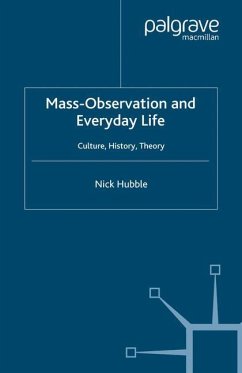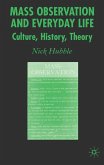The social-research organization Mass-Observation was founded in 1937. In this book, the true extent and significance of Mass-Observation's unique role in the formation of postwar Britain's idea of itself through the examination of everyday life across the long twentieth century. An excellent guide to Mass-Observation and the period generally, this scholarly work also provides surprising insights into the role social research has played in the development of policy and mass democracy.
'An insightful new history.' - The New Yorker
'Hubble's account is much needed, and the depth of detail and analysis that is evident in it ensures that it is likely to remain an essential guide to Mass Observation for years to come.' - Textual Practice
'An excellent appreciation of Tom Harrisson and his fellow Mass Observation co-founders.' - History Workshop Journal
'An important book...invaluable to anyone wanting to understand what lay behind Mass Observation and how the organization developed.' - Literature and History
'Hubble provides an exhaustive investigation into the origins of Mass Observation [and] their influence on successive generations of intellectuals.' - Journal of Interdisciplinary History
'Hubble's account is much needed, and the depth of detail and analysis that is evident in it ensures that it is likely to remain an essential guide to Mass Observation for years to come.' - Textual Practice
'An excellent appreciation of Tom Harrisson and his fellow Mass Observation co-founders.' - History Workshop Journal
'An important book...invaluable to anyone wanting to understand what lay behind Mass Observation and how the organization developed.' - Literature and History
'Hubble provides an exhaustive investigation into the origins of Mass Observation [and] their influence on successive generations of intellectuals.' - Journal of Interdisciplinary History








